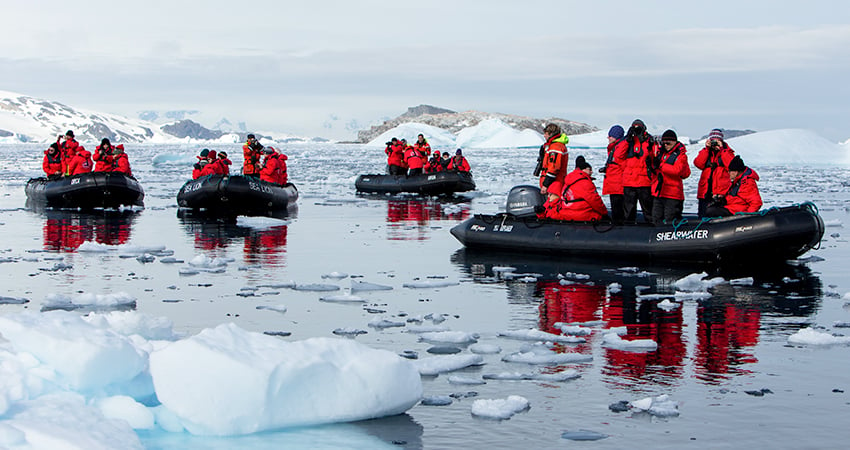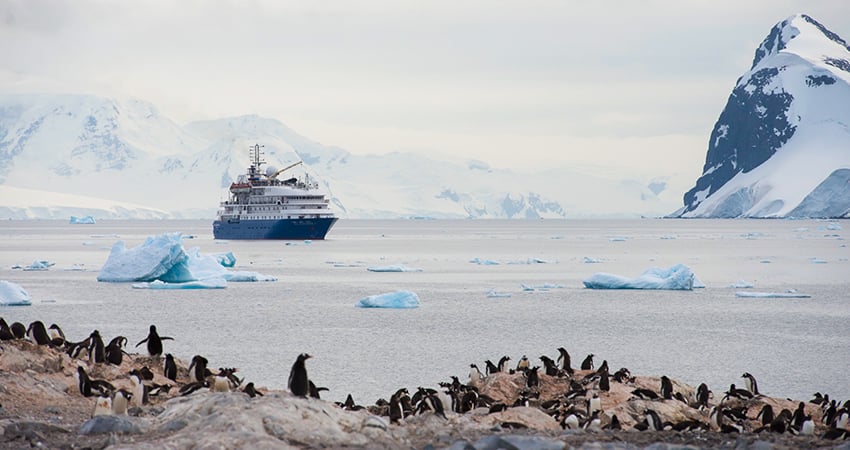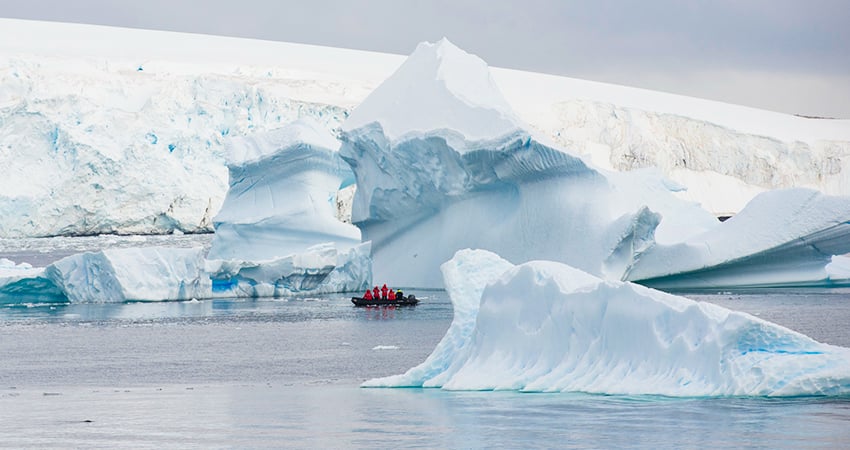Who or What Governs Antarctica? And How Does This Affect Tourism?
8 December, 2022

Most travelers to Antarctica know that the Seventh Continent is not sovereign territory belonging to any one nation, but rather is governed by an international agreement: the Antarctic Treaty. That’s not to say that there weren’t pre-existing claims of sovereignty prior to the Treaty’s coming into force. Argentina, Australia, Chile, France, New Zealand, Norway and the United Kingdom all had territorial claims to parts of Antarctic, some going back to the 19th century. But with the signing of the Treaty in December 1959, these sovereign states mutually agreed to put their claims in abeyance for the duration of the Treaty’s life, 100 years.
An interesting side note to the Treaty is that it doesn’t report or act in any subservient way to the better-known international body, the United Nations. As a group of 59 signatory nations, 12 of which have consultative or voting status, it stands completely independent of actions and policy of the United Nations. But, we are getting off track!
In many ways, the Antarctic Treaty is a political and diplomatic document and doesn’t itself have much to say about tourism or how it should be conducted. That falls to an associated document that was signed at the Antarctic Treaty Consultative Meeting (ATCM) in Madrid, Spain in 1991 – the https://www.ats.aq/e/protocol.html">Protocol on Environmental Protection to the Antarctic Treaty. More simply, if is often referred to as the Madrid Protocol or the Environmental Protocol.

When the Treaty’s signatory nations meet annually at the ATCM, it’s under the umbrella of the Environmental Protocol that most of the serious discussions take place – those relating to scientific activities, prohibitions on any sort of mineral or resource extraction for commercial purposes, wildlife and marine area conservation, and, of course, tourism. For any new policy or directives to be approved, there must be consensus among all of the Consultative Parties. That is often not easy to achieve, even for what would appear to be a simple proposal.

Under the general guidance and principles of the Environmental Protocol and the country where an Antarctic tour operator is based, companies – like Poseidon Expeditions – must seek authorization or permission to conduct tourism activities. This is done annually by filing documents – generally known as an Advanced Notification and an Environmental Impact Assessment – with the company’s national authority, also known as the company’s “competent authority.” Bu doing this, the tour operator also agrees to follow all guidelines and directives that have been approved over the years at various ATCM meetings.
This is a very good thing, establishing high standards for tour operators and expedition cruise ships taking visitors to Antarctica. The captains and expedition leaders must be well versed in these guidelines and carefully follow the rules when taking guests ashore, knowing where to go (and where not to go), how to handle shipboard waste products, and so on. For example, there are key obligations for operators, known as https://iaato.org/visiting-antarctica/guidance-for-organizers/ XVIII-1, which were agreed in 1994. This provides for a high quality and consistency among the various companies that are in the business of Antarctic tourism.

There are also guidelines for the visitors themselves, the latest which were agreed at the ATCM in 2011 – iaato.org/wp-content/uploads/2020/04/Antarctic-Treaty-General-Guidelines.pdf Guidelines for Visitors to the Antarctic, Recommendation 3. Most expedition cruise operators will send these to the travel agent or traveler prior to departure, and they are well worth reading and thoroughly understanding. You’ll also find them on a bulletin board aboard the ship you’re traveling on to Antarctica. It is the responsibility of every visitor to not only understand these guidelines, but to follow them carefully!
The Antarctic tourism industry is represented at the ATCM by an organization called the International Association of Antarctica Tour Operators ( iaato.org). This non-profit trade association was founded in 1991, and advocates and promotes the practice of safe and environmentally responsible private-sector travel to the Antarctic. It is a unique organization in that it brings competitors together to work cooperatively to promote best practices and ensure compliance with the myriad of guidelines established by the Antarctic Treaty System. Poseidon Expeditions is proud to be a member in good standing with IAATO, and fully supports the guidance provided by the association and by the Antarctic Treaty System.